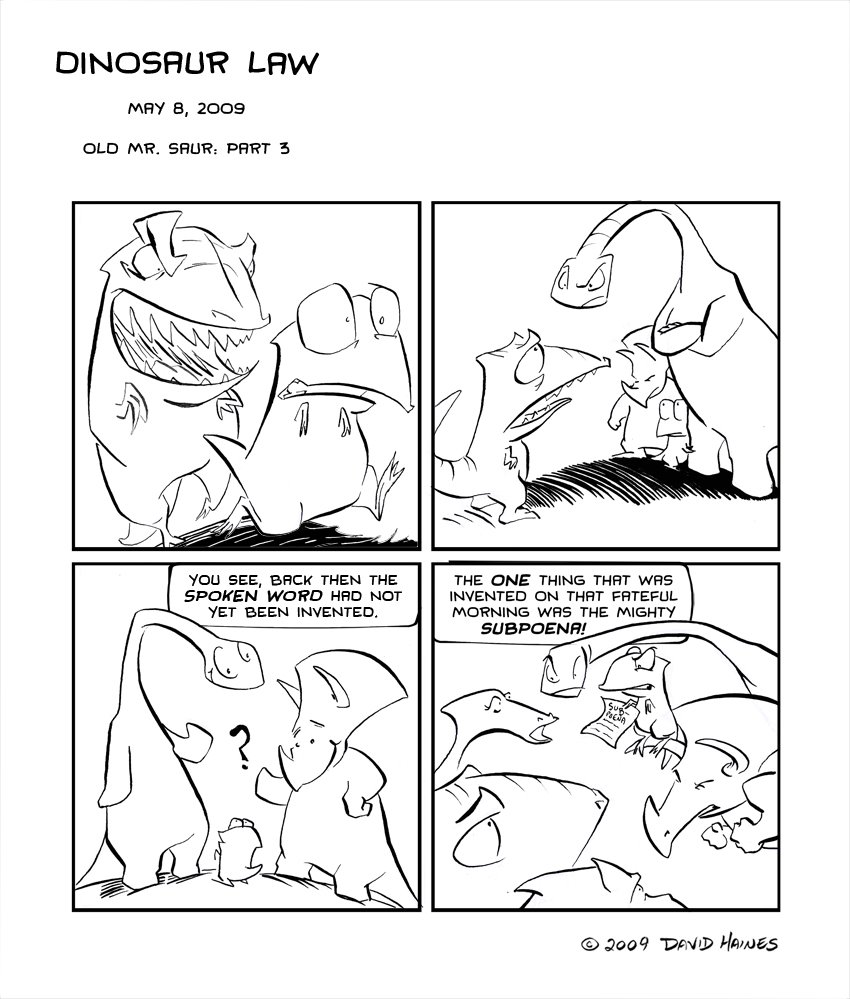
It’s funny because it’s relevant
I recently took at a look at the Odex v. Pacnet decisions that the Singaporean bloggers have been raving about. Were they properly decided? Worth the hype? Moral victories with little practical effect? As always, I tackle these subjects in the most objective, unbiased manner possible. That means you won’t be getting any of the following one-sided crap:
- If illegal downloading isn’t stopped, the anime industry will collapse
- Suing your potential customers is a terrible business strategy
- OH NOES BIG BROTHER IZ WATCHING U O_O
Remember, this is a legal analysis, not a policy analysis. I have no personal interest in the prosperity of Odex or Singaporeans, so I don’t care whether it’s a good idea for Odex to sue downloaders. My only concern is whether it’s legal.
Factual Background:
- Japanese anime studios license Odex to distribute anime in Singapore
- Singaporeans illegally download anime licensed to Odex
- Odex wants to sue downloaders
- Odex hires BayTSP to track downloaders
- BayTSP gives Odex a list of downloader IP addresses
- Odex demands that Starhub, Singnet, and Pacnet (Singaporean ISPs) identify the users of the IP addresses
- Singnet complies, gives Odex a scrotal massage
- Starhub puts up a half-assed resistance, loses in court
- Pacnet puts up a serious fight, wins at the District Court, loses at the High Court
Odex as a Sub-Licensee: The Easy Part
- For some shows, Odex was an exclusive licensee. For others, it was a sub-licensee.
- Singapore’s Copyright Act only allows copyright holders and exclusive licensees to sue for copyright infringement.
- Therefore, Odex could not sue downloaders of shows for which it was a sub-licensee rather than an exclusive licensee.
Singnet and Starhub’s legal teams should’ve been fired, disbarred, and exiled for not making this argument. I can’t imagine how the conversation went…
Odex: Hello, we’d like to sue your subscribers for copyright infringement.
Singnet: Are you the copyright holder?
Odex: No.
Singnet: That’s ok, you can sue them anyway.
If sub-licensees can’t sue infringers, what can they do to stop downloaders? They need to get the copyright holders to join the suit. I could go into the rationale for this (preventing double recovery, notice, responsibility, etc…), but if the statute says only a copyright owner or exclusive licensee can sue, that’s that. ((Singapore has a common law legal system, so there may have been some flexibility. The courts were willing to consider letting a sub-licensee go forward with a suit after obtaining a letter of authorization to sue from the copyright owner. However, the motivation to sue would have to come from copyright owner, not the sub-licensee. The courts found that Odex initiated this suit to protect its own interests, not the anime studios’, so the courts never had to fully address this issue. For now it’s just dicta.))
When Odex appealed the case, it convinced the anime studios to join the suit. Problem solved.
Odex’s Burden of Proof: The Tricky Part
Several problems arise if an ISP turns over the identity of an innocent subscriber, including:
- Violation of the subscriber’s privacy
- ISP’s breach of contract with the subscriber
- Subjecting an innocent person to the trauma of defending himself against legal claims
To minimize the risk of misidentification, Odex needed to demonstrate that the method it used to track downloaders was reliable. How reliable? The District Court adopted the first prong of the Anton Pillar test, which required Odex to prove an extremely strong prima facie case of wrongdoing before obtaining user information.
The District Court held that Odex did not meet this exceptionally high standard. Rather than establishing the reliability of the BayTSP’s downloader-tracking service by describing how it worked, Odex merely established:
- It hired BayTSP to track downloaders
- BayTSP’s tracking service had been accepted in a similar US case
This indirect support of BayTSP’s tracking service was not enough to satisfy the court. On appeal, Odex got BayTSP to testify and submit documents supporting their tracking methodology. This was enough to tip the case in Odex’s favor.
Was the Anton Pillar test the right standard?
At the very least it seems like a right standard. ISPs and their subscribers couldn’t ask for a higher burden of proof without rendering copyright holders impotent to enforce their rights. What I find unsettling about the District Court’s decision to apply this standard is that it was higher than any standard that Pacnet advocated. A lower court creating its own law contrary to precedent and party pleadings may be considered an abuse of discretion. At least that’s how it’s viewed in the United States. The Singapore High Court didn’t seem to care. Maybe Singaporeans aren’t bothered by judicial activism the way Americans are.
Was the standard properly applied?
Probably. The District Court certainly had it right when it found Odex’s evidence insufficient to demonstrate the reliability of BayTSP’s tracking service. After all, how can you know it’s reliable if you’re not told how it works?
The High Court’s decision was probably correct. BayTSP’s testimony, reports, affidavits, etc… addressed the evidentiary deficiencies listed by the District Court. It also seems that Pacnet has a meaningful opportunity to challenge the new evidence. Not having seen the particulars of the evidence, I can’t say for sure whether it should’ve passed, but I’ll give the High Court the benefit of the doubt and assume they got it right (at least procedurally if not substantively).
Does the new standard make a significant difference?
Probably not to legitimately interested parties. A higher evidentiary burden naturally means higher costs of going to court, and closer judicial scrutiny means it’ll be tougher to go forward with fraudulent or frivolous claims. However, judging by Odex’s success on appeal, a legitimately interested party should not find it unduly burdensome to prove an extremely strong prima facie case of wrongdoing, despite how tough that standard sounds in theory. As long as they keep their paperwork in line and have experts testify in court, they’ll probably succeed.
Still awake?


